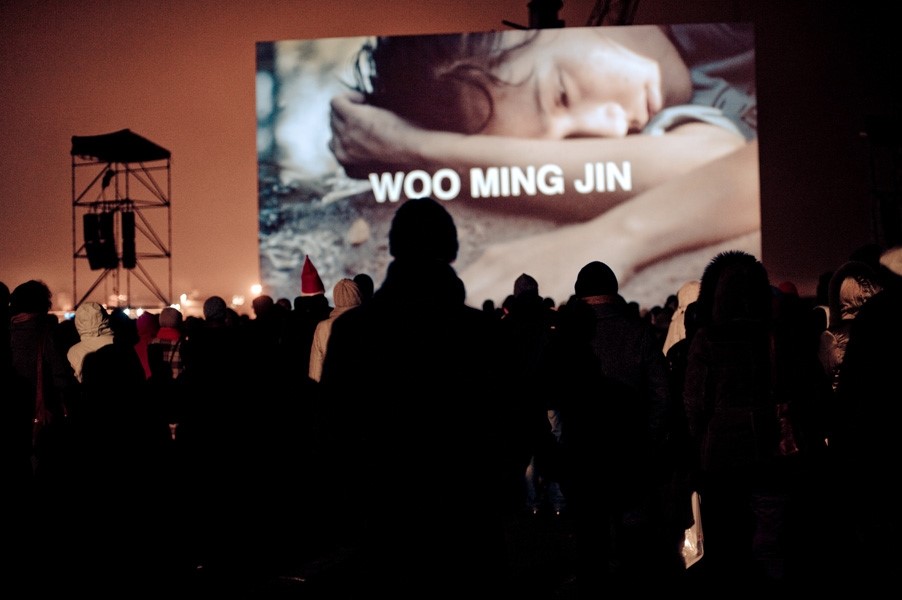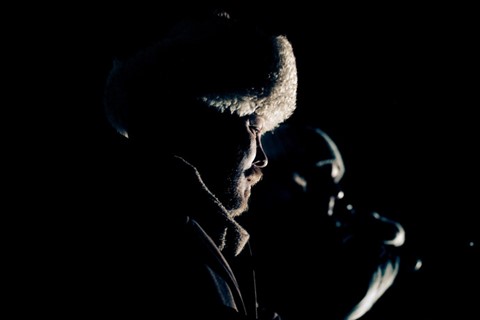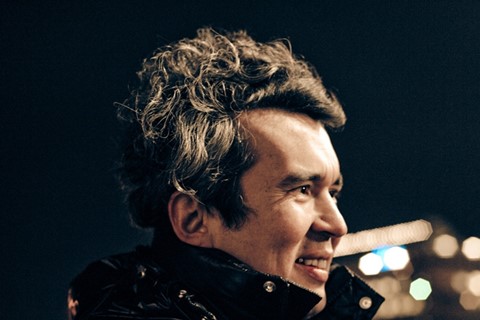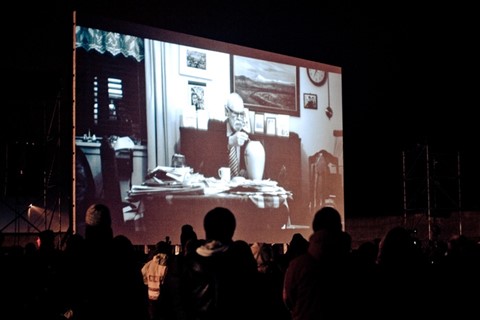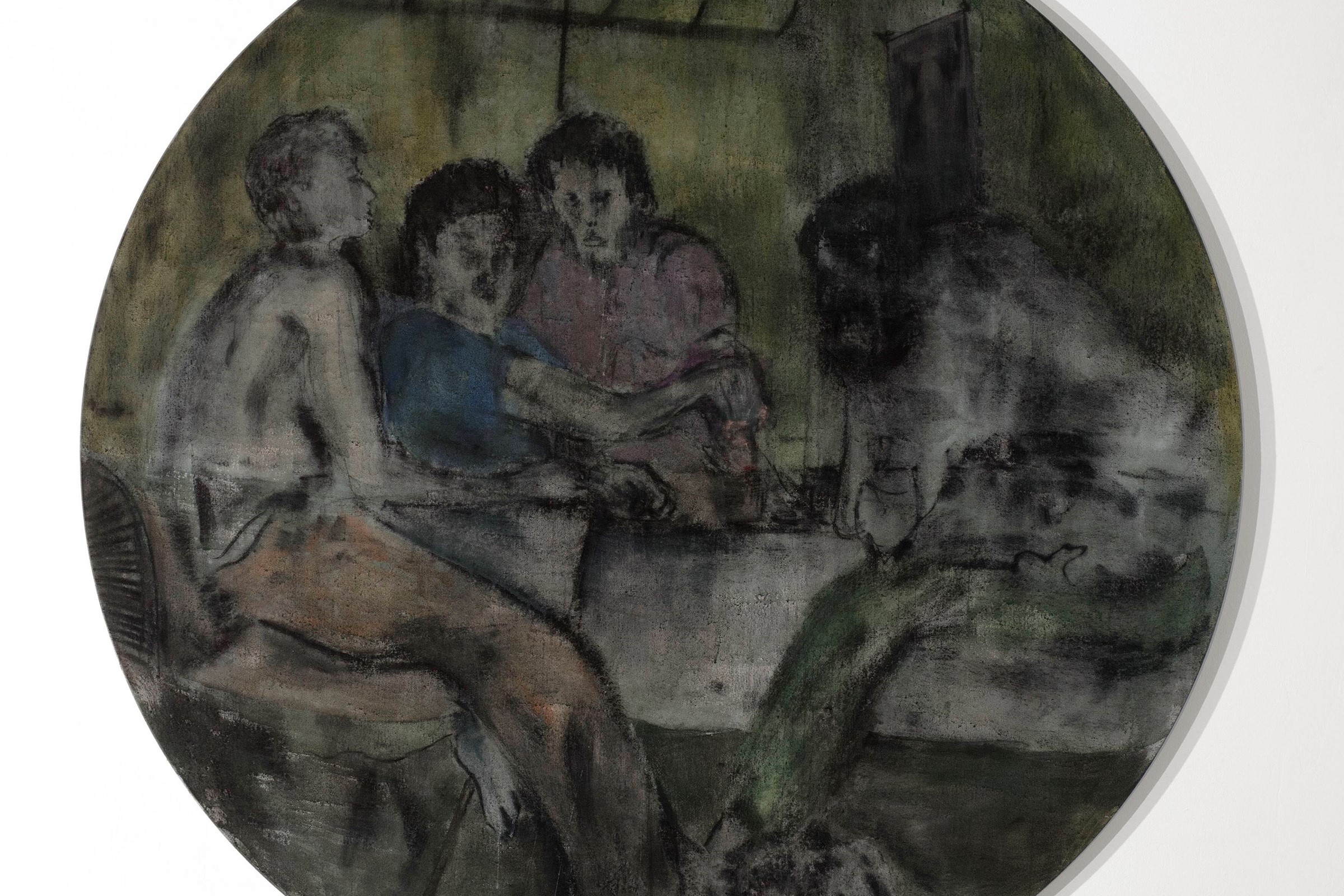Down at Tallinn’s port a crowd gathered several days before Christmas for the once-only screening of 60 Seconds of Solitude in Year Zero, the brainchild of leading Estonian director Veiko Õunpuu and his actor friend Taavi Eelmaa, marking the end of
Down at Tallinn’s port a crowd gathered several days before Christmas for the once-only screening of a film marking the end of the Estonian city’s year as an EU-designated Capital of Culture. Wrapped up against freezing temperatures and intermittent snow, we saw a fascinatingly varied omnibus of minute-long shorts from 60 of the world’s directors, from lesser-known artists to big names such as Park Chan-wook. Named 60 Seconds of Solitude in Year Zero, the film was the brainchild of leading Estonian director Veiko Õunpuu and his actor friend Taavi Eelmaa. More than its content, the film’s significance lies in the fact it was made to exist in those moments only. Shown on a giant screen constructed to then be symbolically set alight, the film will not be marketed or distributed in any way – a stand against the subordination of the creative impulse to business.
Õunpuu has been an outspoken critic of capitalism’s tendencies for a while now. “The lifeblood of societies is not money nor power but the energy and dreams of human beings,” he said when I spoke to him ahead of the port screening. His most recent feature, the elegantly surreal and blackly humorous The Temptation of St. Tony, portrayed the existential crisis of a middle-manager (played by Eelmaa), whose world starts to unravel after he’s tempted to act morally. That and his previous Autumn Ball have brought him success at home and on the festival circuit – but it’s a situation he regards with deep ambivalence. The irony of the 60 Seconds protest being held under the banner of a scheme institutionalising creative production is far from lost on Õunpuu – rather, the dangers inherent in the requirement of funding and collaboration when working in the medium of cinema are at the core of his unease.
“Success is something to be scared of,” he elaborated. “Commercial pragmatism has destroyed most of the beautiful things that western man has relied upon as means for elevation of the spirit: religion, music, poetry, literature, art, cinema – if you're not at it alone in your basement, you're instantly commodified, gobbled up, chewed on, digested and shat out. We want to point out that we, the artists, are in this game because of the game, because we love it, nothing else. Practical mind will effectively, (by taking our game, our love away, by turning it into utilitarian exchange of commodities or power machinations) murder us and our dreams. We decline the invitation to the abattoir. We'd rather see our work burned.”
"We want nothing less than to change the discourse on how we talk about cinema and about the cinematic artist, and ultimately – how we see ourselves as members of society"
The idea of filmmakers destroying their work in flames was not without resistance, especially when Õunpuu tried to secure funding. He recalls: “There were people who were positively appalled by the idea. And there have been attempts to lure us into securing the copy in a time capsule or putting it in the vault of a Swiss bank. To our mind it's like castrating yourself for a heavenly singing voice and still having your balls in a fridge.” He wryly recalls one incensed Latvian journalist even drawing a parallel with fascist book-burning.
But far from aligning itself with historical censorship, the project celebrates cinematic freedom of thought – a statement with particular resonance to participating Iranian film director Rafi Pitts, who told me: “Solitude resembles exile. From a broader point of view with regards to my other fellow Iranian filmmakers (Panahi, Rassoulov, Ghobadi) and the dismantling of our industry by the Iranian authorities I feel this way. The screening of this film is a statement and for 60 minutes the audience can contemplate an expression of solitude in film as art. The beauty is in the freedom of expression for this art.”
A manifesto Õunpuu and Eelmaa authored for the project, printed and free for spectators, expresses the concerns driving the project in 60 moving aphorisms (number 31, for instance: “Only irrationality and a selfless act give the soul back their territory.”) Õunpuu recalls: “It took a couple of years for us to begin to understand the causes of the unease we felt while doing 'our stuff'. Then we sat down one summer evening and wrote some ideas down, out of which Taavi one day wrote this beautiful poem.” He added: “More than the film itself, we emphasise the meaning of the act and the fact that there are many of us. We want nothing less than to change the discourse on how we talk about cinema and about the cinematic artist, and ultimately – how we see ourselves as members of society.”
Text by Carmen Gray
